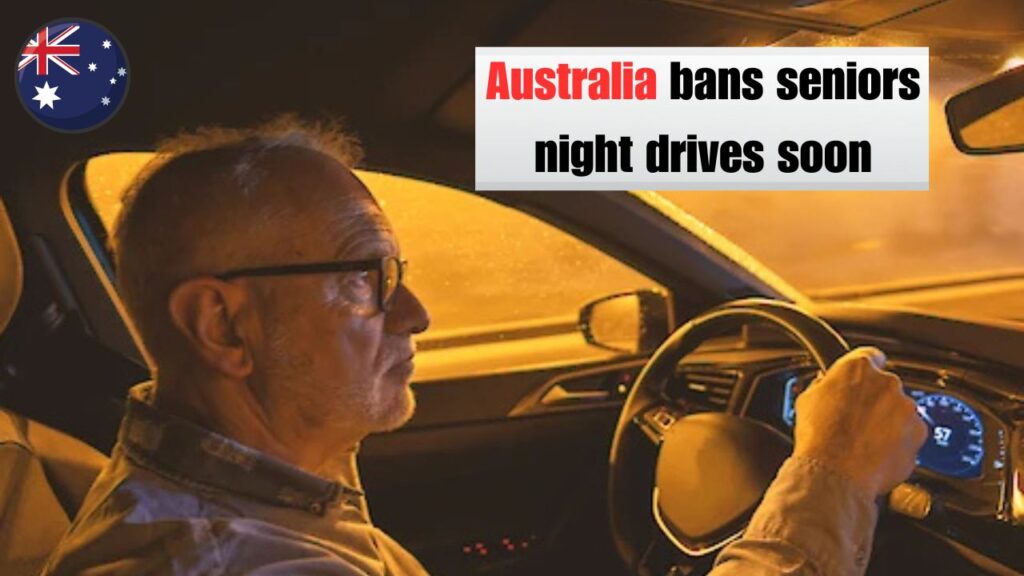Australia Night Driving Curfew From October 2025, Australian road safety authorities are introducing a night driving curfew for seniors aged 60 and above. This new regulation aims to reduce accidents involving older drivers by limiting travel during specific hours. The night driving rule will initially apply in select states before expanding nationwide. Seniors will still be allowed essential travel under certain exemptions. The government has also announced penalties for violations and a detailed monitoring system through road cameras to ensure compliance with the new driving guidelines.

Why Australia Introduced Night Driving Restrictions
The decision to impose a night driving restriction for seniors over 60 stems from increasing road safety concerns. Statistics show that fatigue and visibility issues lead to higher accident risks for older drivers after dark. By limiting driving between 10 p.m. and 5 a.m., authorities hope to improve road safety standards and protect vulnerable motorists. The policy is also part of the broader 2025 Road Safety Improvement Plan, focusing on reducing fatalities involving seniors. Authorities believe this step will enhance awareness, encourage carpooling, and reduce unnecessary night travel.
Penalties and Fines for Rule Violations
The new rule carries strict penalties for seniors who ignore the curfew. A first-time violation may result in a $200 fine, while repeated offenses can lead to temporary licence suspension. The government has also installed AI-based road cameras capable of detecting curfew breaches automatically. In some regions, the fine amount may vary depending on the severity of the violation. Additionally, insurers may impose penalties if drivers are found non-compliant with the official road policy. To avoid fines, seniors are urged to plan their travel within allowed hours and stay informed about regional variations.
Exceptions and Medical Considerations
Despite the new restrictions, the night driving curfew allows certain exemptions for medical emergencies, caregiving duties, and work-related travel. Seniors with medical appointments or urgent needs can apply for temporary night permits through their state’s transport department. Authorities also clarified that drivers in rural or low-traffic areas may receive extended flexibility. The rule will be introduced with a grace period to allow seniors time to adjust and apply for exemptions. The Australian government emphasized that the purpose is not punishment but safer night driving for everyone.
Implementation Timeline and Public Response
The night curfew for seniors will begin enforcement from October 25, 2025. The rollout will start in New South Wales and Victoria before expanding nationwide by early 2026. While many road safety advocates welcome this step, some senior associations have raised concerns about independence and accessibility. The government plans to review the curfew impact after six months to make necessary adjustments. Awareness campaigns, workshops, and public consultations will continue through 2025 to help seniors transition smoothly to the new road safety rule.
| Rule Aspect | Details |
|---|---|
| Eligible Age Group | Drivers aged 60 and above |
| Curfew Hours | 10:00 p.m. to 5:00 a.m. |
| Start Date | October 25, 2025 |
| Fine for Violation | $200 (first offense) |
| Monitoring Method | AI-based traffic cameras |
| Exemptions | Medical, caregiving, or emergency travel |
FAQ 1: When will the curfew take effect?
The senior driving curfew begins on October 25, 2025.
FAQ 2: Which age group is affected?
It applies to Australian drivers aged 60 and above.
FAQ 3: Are there any exceptions to the rule?
Yes, medical and emergency travel are exempted.
FAQ 4: How will violations be tracked?
AI-based traffic cameras will automatically detect violations.






